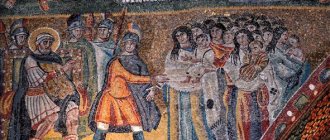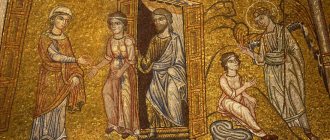If you love intellectual relaxation, then you probably do crossword puzzles or scanword puzzles in your spare time. Of course, this is a very exciting activity that allows you to expand your horizons and demonstrate your erudition.
Just how often have you encountered a situation where you need to guess, for example, a 6-letter word that you have no idea about? Most likely, you will remember more than one such case when, due to such an unfortunate misunderstanding, another scanword puzzle remained incompletely solved. But now you have a unique assistant - the Crossopen.ru !
Answers to scanwords on VKontakte, Odnoklassniki and many others
What is our service?
It will replace you with many dictionaries, encyclopedias and well-read relatives with whom you previously consulted if you were unable to find the right word on your own. With Crossopen.ru you can easily solve a crossword puzzle of any difficulty level using an intuitive search form.
The main advantage of our service is a huge database of words and questions for which you can find the appropriate answer. A user-friendly interface will provide you with a quick search for words of 3, 4, 5 or more letters . It is important to note that at the same time you can clarify your request by indicating the subject, as well as the letters you already know - the so-called word search by mask .
Let's look at the interface using a clear example: you need to find out the poet's last name, which has 6 letters, and the third is “sh”. You set up a search for 6-letter words, click on the corresponding empty cell and insert the letter you know, after which you specify the keyword - “poet”. As a result, you get various options, one of which is sure to be correct. This way you can find any answers to crossword puzzles , because it’s very simple!
You can solve any crossword puzzle!
Our service is absolutely free, and you can freely use it to search for answers to any crossword or scanword puzzle, both from the newspaper and on the Internet. For example, our database contains almost all the answers to Odnoklassniki and VKontakte crossword puzzles, which will allow you to solve them quickly and with pleasure.
Plus, you can create these kinds of brain teasers yourself! To do this, just list the words in alphabetical order and choose the options that suit you with descriptions so that the resulting crossword puzzle is interesting and educational.
So if you like to solve crosswords, the Crossopen.ru will become a convenient and reliable assistant for you. Spend your free time doing your favorite activity with pleasure!
Meaning of the word clear
(κλήρος, clerus) - clergy, clergy. C. in a broad sense refers to the composition of clergy, according to the rules of the Christian church, ordained to serve in it, in a less extensive sense - the totality of all clergy of the church, with the exception of bishops, also - the composition of clergy and clergy at a certain church institution (at a parish church, cathedral, house).
The name κλήρος, as applied to the clergy and in contrast to λαός - the aggregate of the laity, was adopted from the method of election to the apostolic service, by lot, of the Apostle Matthew mentioned in Holy Scripture (Acts, I, 23-26). The composition of the Church, the methods of acceptance into the Church, the conditions of initiation, the rights, duties, position and relations of the clergy were formed in the original church according to the teachings, examples and instructions of the apostles, practice or customs, and then the rules of the church. On the basis of the apostolic teaching and tradition and the rules of the universal church, the general principles of the canonical position of K. were established, which were observed, developed and preserved to this day not in the same form in the Orthodox, Roman Catholic, Armenian-Gregorian and other ancient Eastern churches, but partly and in some churches of later origin (Anglican, Swedish, Finnish and to some extent Lutheran-German). Various aspects of the legal status of K. and clergy in the history of various countries, local and denominational churches, in addition to the general rules that developed during the formation of the legislation of the universal church, were also determined by local customs and legalizations, both church and state. The different correlations of factors that acted on the historical development of religion at different times and in different countries and churches—the creed, the rules of the ecumenical, local and denominational churches, and state legislation—explain the differences in the composition and design of religion in different countries and churches, as in history, and in the current law of modern Orthodox and Roman Catholic churches. According to the rules of the Orthodox Ecumenical Church, the congregation includes two classes of persons: clergy (ύπηρεταί, κλήρίκοι in the narrow sense) and clergy (ίερωμένοι, ίερατίκοί). The first are placed in the service of the church through the rite of χειροθέσια or are determined and included in the Church by orders of the church authorities, on the basis of local church and state legislation. In the ancient church, their composition in different localities included subdeacons, singers, readers, acoluths, exorcists, ostiari, laborers (κοπιάται), ekdiks, notaries, defensores, etc. Most of these types of K. did not survive in the history of Orthodox local churches . In ancient Russia, clerks, clerks, sextons, sextons and other “church people” were classified as clergy; They were called by the common name “clerks,” which is still used to this day. In the 18th and 19th centuries. According to state legislation, the category of clerics, in addition to sextons and sextons, included ministers at various church institutions (cathedral churches), assigned by state under different titles (choristers, candle bearers, bell ringers, watchmen, etc.). In 1869, it was legalized to recognize one type of clergy in K., namely psalm-readers.
In the modern law of all local Orthodox churches, clergy in the narrow sense are those persons who “received initiation to serve the church outside the altar” - subdeacons, readers and singers; in some churches they include those preparing to enter sacred positions, under the leadership of bishops or admitted to participate in church services (in the Romanian Church); in other churches, clergy are considered to be those who hold church titles and positions - both clergy and secular persons. According to the rules of the universal church, the following cannot be accepted into the ranks of clergy or clergy through a religious rite of initiation (χειροθέσια) performed by the bishop: those who do not belong to the church, those who have been tried and accused of crimes against Christian morality, the rules of the church and state laws; those in an illegal marriage, those married to non-believers, those who do not have the rights of civil freedom (slaves, prisoners, etc.), those possessed by mental (possessed) and physical illnesses that prevent them from fulfilling their duties in the service of the church, and who have not prepared for this service and not tested by the bishop in behavior and preparation for church service. The positive conditions required from a candidate for the title of cleric are the following: age legalized by the rules of the local church, belonging to the Orthodox faith, impeccable moral behavior, degree of education established by the rules or customs of the local church, preparedness and disposition for church service, physical health and mental state necessary to perform the duties of a cleric. The peculiarities of the position of clergy in the church include: jurisdiction of their ecclesiastical court on church matters, rights and relations, subordination and obedience to church authorities by position, maintenance from office and priority over the laity, under equal conditions, the right to ordination to the holy rank of deacon. Civil, state and public rights are determined by state legislation. The ecclesiastical rights of clergy are terminated by dismissal from office at their own request or by order of ecclesiastical authorities, by a verdict of an ecclesiastical court, and in the event of a criminal conviction.
Priests are those clergymen of the Orthodox Church who are ordained to serve the church through the sacrament of the priesthood through ordination - χειροτόνια - and have their purpose to spread and affirm in people the teaching of the Christian faith and the beginnings of Christian morality, to perform divine services and sacraments and to participate in the organization and administration of the church. The class of clergy, according to the distinction between the three degrees of priesthood, includes deacons, presbyters and bishops (see). Persons who cannot be accepted into the clergy (clergy), as well as those who have not reached 25 years of age, who are not distinguished by an impeccable life, who do not have a degree of knowledge, certain rules of local churches, and bigamists who have married a widow cannot be ordained to the degree of deacon. or on a divorced or vicious girl, who entered into a marriage subject to recognition as invalid, who intend to marry after initiation, who have members of a non-Orthodox faith in their family and who are not prepared for initiation by prior service in the clergy or corresponding service to the church (in a teaching position ), or education and chirothesis. In some local churches, subdeacons (see), who, in this case, are ordained on conditions equal to deacons, are also included in the rank of deacon. Persons who cannot be deacons cannot be ordained to the presbyterate degree, but, in addition, candidates for presbyters are required to be at least 30 years old (VI Ecumenical, reg. 14), educational theological qualification established by customs or rules local churches, preliminary service in the church, status in the degree of deacon and firmness in faith and in an immaculate life, evidenced by the test of confession. The special conditions required from a candidate for bishop, in addition to those established for those ordained to the priesthood, are the following: proven loyalty to Orthodoxy for at least 4 years, a degree of knowledge in the Holy Scriptures and in the canons of the church, sufficient to explain them to other people, a state of priesthood, freedom from marriage, absence of physical defects (deafness, speech impediments) that could interfere with the performance of episcopal duties, and, according to the practice common in many local churches, preliminary, before initiation, tonsure into monasticism (special church rights and obligations of each type clergy - see Deacons, Presbyters, Bishops). The peculiarities of the legal status of all clergy, according to the rules of the universal church, are as follows: 1) they cannot take upon themselves worldly care and go into public administration, that is, hold positions in the state, zemstvo, society and in the management of the estates of private individuals; 2) cannot marry, be guarantors for others, attorneys and intercessors in other people’s affairs, with the exception of the affairs of the church and minors under their care; 3) in all church matters, rights and relations they are subject to obedience, subordination and jurisdiction of the church authorities, also for charges of such criminal offenses that are incompatible with the rank of clergy. On the basis of these principles, the legal position of clergy of the Orthodox Church in local churches and different countries is regulated by state and local church legislation. The rights of clergy are lost: by voluntary resignation with the permission of church authorities, by verdicts of church and state courts, as a result of accusations of crimes, and episcopal rights, moreover, by taking tonsure into the schema.
Sources and literature. “The Book of Rules of St. Apostle, ecumenical and local councils and St. father" (ed. 1862); “Addition to the Spiritual Regulations on the Rules of the Church Clergy” (M., 1856, p. 95 et seq.); “On the positions of parish elders” (25th ed., M., 1853); Shagun, “A Brief Exposition of Canon Law” (St. Petersburg, 1872, pp. 218-237, 257-262); Berdnikov, “A Short Course in Church Law” (Kazan, 1888, pp. 40-48); Dr. Milas, Orthodox Church Law (Zadar, 1890, pp. 233-278).
Since the 12th century, the Roman Catholic Church has arrogated to itself the exclusive power, regardless of the state, to determine and legitimize in the church and state the position and rights of the Church, as a special state of the church (Status ecclesiasticus); but in modern times, state legislation in all countries limits many of the privileges of K., assimilated to him by the Roman Catholic hierarchy. According to the canon law of the Roman Catholic Church, K. is intended for exclusive governance in the church and is divided into clerus saecularis and regularis (see Monasticism). The methods of entry and acceptance into K. are tonsura (tonsure) and ordinatio (initiation). These methods are as necessary for acquiring the rights of a clergyman as baptism is for joining the membership of the church. The Church has adopted seven degrees of initiation. According to the difference in degrees, clerics have different names, acquire different rights and are divided into ordines min ores - lower clerics, which include ostiarii, lectores, exorcistae, acolythae, received through tonsura, and ordines majores, which include subdiaconi, diaconi et presbyteri . Above the presbyterate rank stands the ordo episcoporum, the members of which receive the rank through the consecratio episcopalis. For acceptance in K., conditions are established on the part of the person being accepted (ordinandus) and the recipient (ordinarius) and the basis (tituli ordinationis). To enter K., the applicant requires absolute ability to be a cleric and the presence of certain qualities. Women who have not been baptized are also considered incapable of joining the Church. Obstacles to admission to K. are the personal shortcomings of candidates, called irregularitates. Irregularitates are of two kinds: ex d efectu and ex delicto. Irregularitates ex defectu: a) def. natalium - origin from an illegal marriage; b) def. libertatis, according to which slaves, serfs, and spouses without the consent of their wives, who are obliged to report on the management of public funds or other people's estates, cannot be accepted into the clergy; c) def. aetatis is a deficiency of age, which is determined for admission to the ordines majores at 21, 22 and 24 years old, and for consecration as a bishop at 30 years old; d) def. corporis, which interferes with the performance of the most important duties of the clergy or is inconsistent with its dignity; e) def. scientiae - lack of educational qualification established at the Council of Trent; f) def. animi - i.e. mental illness; g) def. sacramenti, according to which persons who have been in two consecutive marriages, married to widows, etc. are not accepted; h) def. perfectae lenitatis - a lack of kindness, assumed in persons who participated in the decision or execution of a death sentence, in murderers, military people who were in the war, surgeons; i) def. fidei, according to which converts who are not confirmed and baptized while suffering from a serious illness (clinici) are excluded from candidates for K. Some of the listed irregularitates (for example, def. natalium legitimorum) can be eliminated by a papal dispensation. Irregularilates ex delicto include all crimes and misdemeanors in general, which, according to the laws of the state and the rules of the church, are connected with infamia.
Only a hierarch who has ordinaria jurisdictione in relation to the initiate or who has received permission to do so can initiate into K. The grounds for initiating new persons into the K. are: a) titulus beneficii - the availability of a position provided with sufficient material support; b) tit. patrimonii vel pensionis - according to which the initiated person can receive maintenance either from his own property, or from a scholarship assigned to him by some institution or private person; c) tit. mensae, by which the bishop or other person undertakes to provide the initiate with sufficient maintenance; d) tit. religiosae professionis - the appointment of the initiate to perform church services in monasteries and e) tit. missionis - dedication to go on missionary work.
Clerics, according to the rules of the church, enjoy special benefits called privilegia cleri. The types of these privileges are as follows: a) privilegia canonis, which include a special place in the church, the right to respect from the laity, special clothing and participation in the management of church institutions by appointment ordinarii; b) priv. fori - exclusive jurisdiction of ecclesiastical jurisdiction in all matters, ecclesiastical, civil and criminal; but this privilege is limited in different degrees by the laws of modern states in different countries; c) priv. immunitatis - freedom from personal taxes and duties, state, zemstvo and public; it is also limited by the laws of individual states, and d) beneficium competentiae - the right to decent maintenance in all circumstances of life. Clerics are charged with special duties: celibacy, daily reading of the prescribed prayers, complete obedience to church authority, and withdrawal from worldly activities and amusements.
Wed. Hinsetius, “Das Kirchenrecht der Katholiken und Protestanten” (Berlin, 1869); Schulte, “Lehrbuch des Kath. und evangelischen Kirchenrechts" (4th ed., Giessen). For the history of the clergy in the West, see Church in Russia; see also Clergy.
M. Gorchakov.
Other meanings of this word:
- “…-beat”, Lermontov
- (Ishmael) in the Bible the son of Abraham and his concubine Hagar; in Islam - one of the prophets
- Took Suvorov
- in the Bible - son of Abraham, ancestor
- In the old According to legend, son of Abraham and Hagar
- In Old Testament traditions, the son of Abraham and Hagar
- In Old Testament traditions, the son of Abraham and Hagar; port on the Danube
- taken by storm by Suvorov
- City in Ukraine on the Danube River
- A city in Ukraine, in the Odessa region, a port on the Danube
- A city in Ukraine that Suvorov once took
- a city in Ukraine, Odessa region, a port on the Kiliya branch of the Danube; during the Russian-Turkish War of 1787–91 it was taken by storm by Russian troops of A.V. Suvorov
- A city of regional subordination in the Odessa region of Ukraine, the administrative center of the Izmail region
- A port city in the Odessa region, on the Kiliya branch of the Danube
- for the capture of this city A.V. Suvorov received the rank of lieutenant colonel of the Preobrazhensky regiment
- the name of this ancestor of the Arabs translated from Hebrew means “God will hear”
- Painting “Storm of the fortress...”
- Suvorov Fortress
- Fortress taken by Suvorov
- fortress taken by storm by Suvorov
- Fortress, Suvorov
- Battlecruiser of the Russian Imperial and Soviet Navy, the lead in a series of battlecruisers of this type
- Place where the battle took place in 1790, Russia-Türkiye
- male name: (Hebrew) heard by God
- Port on the Danube in Odessa region, a former Turkish fortress taken by storm by Suvorov
- pier on the Danube
- Founder of the Arabs
- Founder of the Arabs (biblical)
- ancestor of the Arabs, son of Abraham
- Son of Patriarch Abraham (biblical)
- son of the patriarch Abraham and Hagar, mythical ancestor of the Ishmaelite Arabs (mythical)
- Turkish fortress on the Danube, taken by storm by Suvorov in the Russian-Turkish war of 1787-91
- Turkish fortress on the Danube, taken by storm by Suvorov in the Russian-Turkish war of 1787-91
- Turkish fortress on the Danube, taken by storm by Suvorov in the Russian-Turkish war of 1787-91.
- Guess the name by value. (from Hebrew) God will hear
- Ukrainians. city on the Danube River
- Ukrainian city on the Danube River
- Ukrainian port on the Danube
- Suvorov took this city by storm
The highest honorary title (clergy) of bishop
vol.), but in the chronicles of that time the country is called Russia, Grand Duke Dmitry Ivanovich and Metropolitan Cyprian himself appear with the title of “All Rus'” (under 1388-1392) {1}, in addition, in the end of 1382, Grand Duke Dmitry Ivanovich with the Ryazan prince Oleg, Metropolitan Cyprian is designated with the same title - “all Rus'”, and in the end of 1389 of the Grand Duke Dmitry Ivanovich with the Serpukhov prince Vladimir Andreevich, Cyprian’s predecessors, metropolitans Alexei and Pimin, are mentioned with the title “metropolitans of all Rus'” {2}.
Both of these things happened quite legally, and the chronicler expressed that “God put it in the prince’s heart” to install Hilarion as Metropolitan 8: according to the ancient rules of the Church, it was not left to the patriarch to elect a metropolitan, but to the bishops of the region for which the metropolitan was intended; every bishop and metropolitan, if he did not already have episcopal rank, was sufficient in case of need, even three or two bishops of the region 9.
But now, when the election and installation of the Russian Metropolitan began to take place in Russia itself and mainly at the will of the Russian sovereign, when the Russian Metropolitan not only lived permanently in Moscow, but was certainly a subject of the Russian sovereign, it was now impossible to expect that the sovereigns of Lithuania would not take care to tear away finally their Lithuanian Orthodox dioceses from the Russian Metropolis and did not subordinate them to their special Lithuanian metropolitan.
During this entire period, which lasted about two and a half centuries, there were only two cases in the Russian Church of the independent election of metropolitans: the first - in the days of the Grand Duke Yaroslav, when, by his will, the Council of Russian Bishops elected and installed Metropolitan Hilarion, a Russian by birth, for Russia; the second case, even more remarkable, was in the days of Grand Duke Izyaslav, when in exactly the same way another Russian named Kliment Smolyatich was elected and installed as Metropolitan for Russia.
During this entire period, which lasted about two and a half centuries, there were only two cases in the Russian Church of the independent election of metropolitans: the first - in the days of the Grand Duke Yaroslav, when, by his will, the Council of Russian Bishops elected and installed Metropolitan Hilarion, a Russian by birth, for Russia; the second case, even more remarkable, was in the days of Grand Duke Izyaslav, when in exactly the same way another Russian named Kliment Smolyatich was elected and installed as metropolitan for Russia.
Seeing this touching modesty, the Greek hierarch, probably not without a sly smile, wrote to Moscow in response that the coronation ceremony performed by Metropolitan Macarius was “unserfful”, that according to the law not only the metropolitan, but also other patriarchs could not perform it , except Roman and Constantinople; therefore, the patriarch sends his special exarch-metropolitan to Moscow, “may he perform the divine sacrament and bless the sovereign-tsar, as if on behalf of the patriarch, having the power to create every principle of the priesthood without restraint, as a true and conciliar patriarchal exarch.”
But there is nothing more permanent than temporary things, and already in 1459, the locum tenens Metropolitan Jonah, dying, took a signed oath from all Russian bishops that they would never turn to Constantinople for a metropolitan, especially since it had already been conquered by the Turks in 1453 , but they will always choose the metropolitan themselves.
....Alexiy (Alexey) - defender (Greek e) Alexy, Metropolitan of Moscow and All Rus' - February 25 ... Vasily) - July 28. Hieromartyr Vladimir, Metropolitan of Kiev and Galicia - February 7. Vyacheslav - highly famous ... f) Grand Duke Dmitry Donskoy - June 1. Metropolitan Dmitry of Rostov - June 5, October 4, 10 ..., January 9. Philip p - loving horses (Greek) Metropolitan Philip II of Moscow and All Rus' ...
Her biography was consulted by the most prominent scribes and writers of the Russian Middle Ages - among them the Venerable Nestor the Chronicler and our first hagiographer, Iakov, the Kiev Metropolitan Hilarion and the “Russian Chrysostom” Bishop Kirill of Turov, the 15th-century Pechersk monk “sinner” of Feodosia and the famous Serb Pachomius Logofet, the Pskov writer of the 16th century Vasily-Varlaam and the Moscow Metropolitan Macarius, the Annunciation priest Sylvester and the creator of the Book of Degrees, Metropolitan Athanasius, the priest John Milutin and Metropolitan Dimitri of Rostov.









